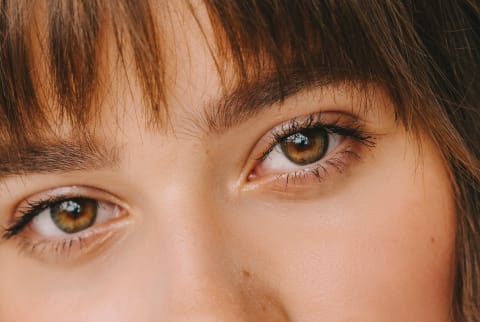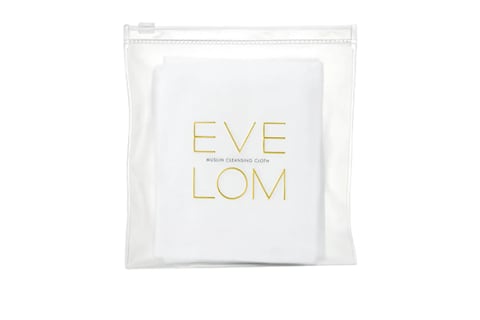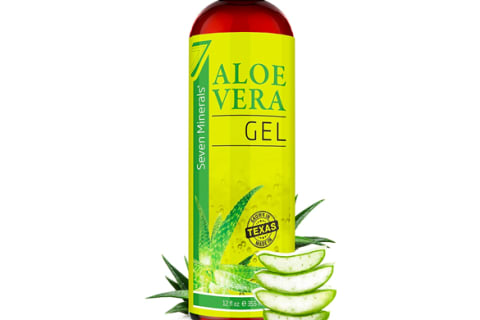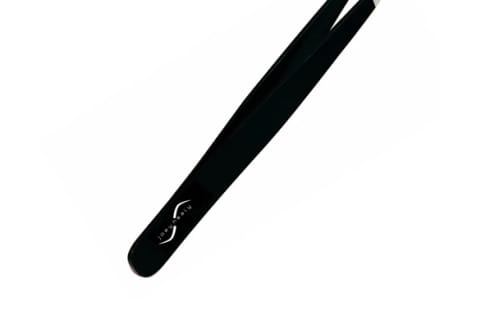Advertisement
What Is Eyebrow Threading? Everything You Need To Know Before Booking


Partial to a sharp and tailored arch? We bet you'll fall in love with eyebrow threading. Now, you might not think using a soft piece of thread can result in immaculately groomed brows, but trust when we say: This brow service quite literally whips your eyebrows into shape. (Check out the plethora of visually satisfying videos on social media, and you'll know exactly what we mean.)
After you watch said videos, you might end up a little confused, if not apprehensive. How does the thread lasso each hair into its grip? How long do these immaculate brows last? And perhaps the most pressing question of them all: How much does it hurt? Ahead, we tapped brow experts for everything you need to know.
What is eyebrow threading?
Eyebrow threading is an ancient form of hair removal that uses a cotton thread to remove the stray hairs above and below your brow shape. The technique has been used for centuries in South Asia and the Middle East, says celebrity brow expert Dani Kimiko Vincent, founder of KIMIKO, and "the process involves 'rolling' a series of looped cotton threads against the skin to create a twisting motion that pulls out hairs from the root." Essentially, the thread wraps around each hair and traps it inside a tiny coil, which makes it easier to remove.
The service is most popular for eyebrows (hence, the name), but you can technically thread any unwanted facial hair—upper lips, chin, cheeks, etc. Just don't try to thread anything beyond the face, as it's far better suited for those tinier, wispier strands.
Benefits:
- Great for sensitive skin: "Brow threading is ideal for those who are sensitive to waxing products, as only cotton thread contacts the skin," says Vincent.
- Precise: Threading is also more accurate than waxing (although less accurate than tweezing, which grabs each individual hair). Says brow expert Joey Healy, it helps clean up those "tiny, barely perceptible hairs" that often get left behind during a wax.
- Quick: Given its sheer precision, you may think threading requires several minutes in the technician's chair. Not so! "It is a quick and effective way to remove hairs from brows (and the rest of the face) without removing the top layer of skin like waxing does," says Healy. Especially if you have a lot of hairs between the upper brow and the hairline, threading can quickly uproot the wisps from the follicles.
- Lends a tailored brow: "If your aesthetic leans toward more sharp-looking brows, then you'll like the look that threading can achieve," says Vincent. "If you want to achieve a softer, more natural brow, then you may want to stick with tweezing."
- Best for thicker brows: Both Vincent and Healy agree that those with thick, dense brows are the best candidates for threading. Rather than sitting with a pair of tweezers and painstakingly plucking out each strand, threading can quickly uproot unwanted hairs in record time.
How it works
Threading works in a few different ways: Sometimes, the technician will hold the piece of thread in their teeth to keep it steady as it wraps around each hair; or they might wear some sort of chain around their neck and tie the threads onto it as they work.
Other threaders use the "butterfly method," where they twist the thread taut in each hand to keep it steady. "Essentially, there's a stationary point of the thread, and then the thread is rolling and coiling on itself," notes Healy.
No matter the method, the threader will start by wiping the area clean—even if you arrive with a bare face, they'll want to remove any lingering skin care residue. You'll also likely sit in a reclining chair so the threader has access to more surface area.
After the threading, they might apply some sort of cooling gel to the area, especially if you have any redness or irritation. "For those with sensitive skin, we do apply a little bit of tea tree oil or aloe vera," says Healy.
Downsides
Eyebrow threading is great if you want a sharp, tailored brow—but if you prefer a softer, fluffier look, Vincent says you may want to stick with tweezing. "Tweezing also allows for the density of the core brow to be changed, while threading only addresses hair around the brow itself," she adds. So while threading can create a pristine-looking border, it won't address the density of the brows themselves (you may need to pair it with a brow trim).
And while threading is more precise than waxing, nothing is more accurate than using a set of tweezers to pluck each individual hair. "Tweezing is more artistic," says Healy. "It's more of a slower process, but you really sculpt the brow in a more efficient way with an eye toward symmetry." Vincent seconds the notion: "Nothing beats the precision of tweezing because it assesses how each hair contributes to the overall brow and doesn't remove hair in hard, straight lines," she says.
Now, you're probably thinking: Which brow service is most painful? Ultimately, it all comes down to your personal pain tolerance, but people generally find threading less painful than waxing. The technician will also pull your skin taut before each round, which can decrease the discomfort.
However, threading is not exactly pain-free: Many report a burning, tugging effect, particularly on thinner, more delicate areas like above the lip. "There is also some risk of skin being cut or damaged by being pulled into the thread," notes Vincent.
Prep & aftercare
Like any other brow service, the best results are paired with proper upkeep. First, you'll want to stow any exfoliants or retinoids the few days leading up to your appointment, as these can increase the potential for irritation and make threading way more painful. "You can also prep the skin the night before by very gently sweeping a wet muslin cloth or washcloth over the area to exfoliate," Vincent adds.
Muslin cloths are multilayered and finely woven, so they gently buff the skin without aggravating the area—so if you must slough off gunk, debris, and lingering makeup before your appointment, stick to this soft fabric.
Additionally, "Try to space out your sunless tanning away from when you get your brows threaded," says Healy. We're all for a healthy faux glow, but know that threading can potentially remove the pigment a bit and make the brow area look a bit discolored.
As for aftercare, you'll want to stick to gentle, nourishing skin care products for a few days. Your freshly threaded brows are super sensitive, as the follicles are open, so you don't want to layer on any harsh actives for the time being. If you do have any lingering irritation, both Healy and Vincent recommend applying a drop of aloe vera gel to help soothe the area—just make sure you choose a 100% pure option with no fragrance or artificial dyes. (Check out our recommendation below.)
Other than that, try to keep your hands off the brow area. It can be tempting to smooth your fingers over your new brow shape, but you don't want any bacteria from your hands seeping into those open follicles.
How long do threaded brows last?
Generally, experts recommend getting a brow service every four to six weeks (be it a wax, thread, or trim), but the exact timing varies from person to person and depends on how much at-home maintenance you're comfortable with. "Some people like to see their professional every few weeks for a quick cleanup, while others might be more comfortable cleaning up on their own in between appointments," notes Vincent.
If you'd like to buy more time before your next thread, tweezing stray hairs can make a world of difference. "It's always good to have a tweezer at home, like our Elite Sculpting Tweezer, even if you're a fan of threading, because tweezing can help you keep up with them," says Healy. Slick on some brow gel and a drop of powder to define the arches, and you should be set until your next appointment. It may be better to hold off, anyway, until the brows become really unruly: "When you're going to see a professional, you want to give them as much to work with as possible," Healy adds.
The takeaway
If you crave the look of sharp, maintained arches, eyebrow threading is a great brow service to try. The thread won't change the density of your brows, but it's A+ for reaching stray hairs above and below your natural brow structure.
Of course, it's not for everyone—namely, those who prefer a soft, "undone" brow look might stick to tweezing or trimming. And if you have a ton of light, vellus hairs, might we suggest an eyebrow razor instead?



